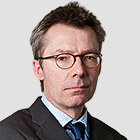Turkey and Russia have agreed on a proposal for a general ceasefire in Syria and will aim to put it into effect by midnight on Wednesday night, Turkey’s foreign minister Mevlüt Çavuşoğlu has said.
But he still insisted that Syrian president Bashar al-Assad must eventually go, a precondition for talks that Russia has always opposed.
There was also no sign that the mainstream Syrian opposition groups had agreed to the ceasefire, and it appears likely there will be be disagreement about the territory to be covered by any ceasefire. The rebel groups will want it to extend to the Damascus countryside, something that Russia opposes.
A senior official in the opposition said they had not received the details of any official deal and denied that they had agreed to a ceasefire agreement.
“The details of the ceasefire have not been presented officially to the opposition factions yet, and there is no agreement at this point,” the official said.
Russia, Iran and Turkey said last week they were ready to help broker a peace deal after holding talks in Moscow where they adopted a declaration setting out the principles any agreement should adhere to.
“There are two texts ready on a solution in Syria. One is about a political resolution and the other is about a ceasefire. They can be implemented any time,” Çavuşoğlu told reporters on the sidelines of an awards ceremony at the presidential palace in Ankara.
He said Syria’s opposition would never back Assad.
“The whole world knows it is not possible for there to be a political transition with Assad, and we also all know that it is impossible for these people to unite around Assad.”
Last week, Russia’s foreign minister said Russia, Iran and Turkey had agreed that the priority in Syria was to fight terrorism and not to remove Assad’s government.
Turkey’s state-run Anadolu news agency said earlier on Wednesday that Moscow and Ankara had agreed on a proposal towards a general ceasefire. The Kremlin said it could not comment on the report, and it may be the Turks have announced something prematurely.
Any ceasefire would exclude groups labelled as terrorists by the two countries, allowing attacks to continue against Islamic State and others. Turkey has said the talks must not include the Syrian Kurdish Democratic party (PYD) or its military arm (YPG).
Arrangements for the Russian-led talks are vague, but Moscow has said they will take place in Kazakhstan. Astana, the Kazakh capital, staged Syrian peace talks in 2015, but critics said they excluded most of the mainstream opposition and so were largely pointless.
Russia’s foreign minister said on Tuesday the Syrian government was consulting with the opposition before possible peace talks, while a Saudi-backed opposition group said it knew nothing of the negotiations but supported a ceasefire.
The talks would exclude groups labelled as terrorists by Moscow, a group that would exclude al-Nusra, the al-Qaida franchise in Syria, and Isis, the Sunni group based in Raqqa in north-east Syria.
Turkey is likely to demand that the Kurdish-led Syrian Democratic Forces (SDF) are also excluded from the Astana talks, even though with the help of the US they have led the offensive against Isis in Raqqa. The US has been backing the SDF since 2015 with training, money and some arms.
The Turkish president, Recep Tayyip Erdoğan, said on Tuesday night that the talks would include representatives of the regime of the Syrian president, Bashar al-Assad, as well as the opposition. But he added: “We will not welcome a decision to invite terrorrist groups to the summit.”Erdoğan made clear he regarded the US-supported SDF as terrorists, saying of the US: “They were accusing us of supporting Daesh [Isis]. Now they give support to the terrorist groups including Daesh, YPG, PYD. It’s very clear – we have confirmed evidence with pictures, photos and videos.”
Erdoğan also blamed the US for the difficulties Turkey was facing with the month-long al-Bab offensive, accusing it of withholding support through aerial operations. “Even though the US-led coalition has failed to keep its promises in our operation to liberate al-Bab, we will rid the city of Daesh terrorists, no matter what.”
The Turkish air campaign has been criticised after 120 civilians were killed in the offensive.
Turkey for the past five years has been the sternest opponent of Assad and broadly aligned with Europe, but appears in the middle of a major diplomatic manoeuvre by allying itself more with Moscow than Washington.
Ankara was noticeably silent during the Iranian-Russian backed assault on east Aleppo, the single biggest reverse of the Syrian opposition.
Turkey’s ultimate goal is unclear, and is made more complex by the imminent arrival of the US president-elect, Donald Trump, who has yet to formulate a coherent Syria policy.
The UN, seeking to stay relevant in the face of the diplomatic initiative being led by the Russian president, Vladimir Putin, has said it will restart its stalled peace talks in Geneva in February, raising the possibility of two parallel peace processes.
Russia has insisted its peace negotiations will complement the UN-led talks rather than conflict with them.











